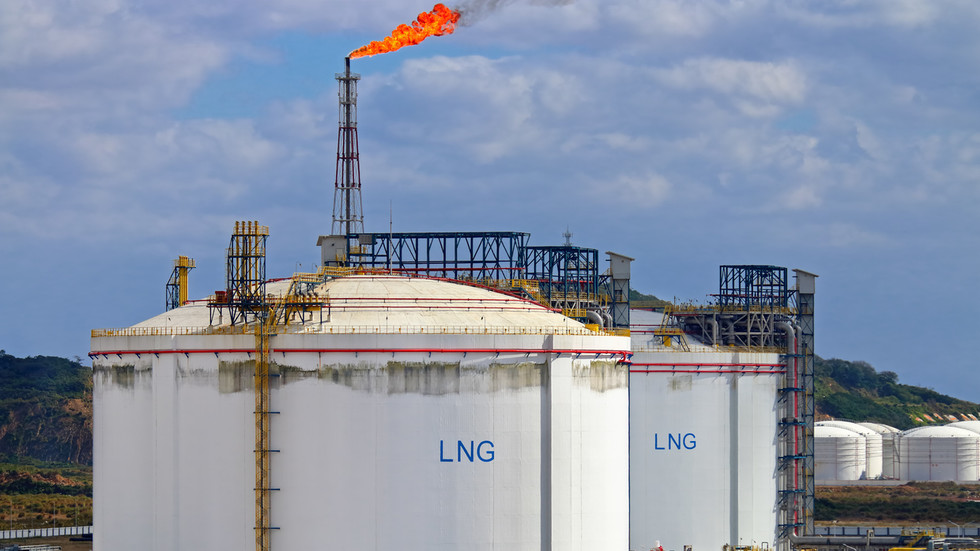
Emissions from the superchilled gas are nearly four times higher than carbon, research has found

FILE PHOTO: Picture of large LNG (Liquefied natural gas) tanks at LNG regasification terminal, with gas flare stack. © Getty Images / Sky_Blue
Liquefied natural gas (LNG) – which Germany has been increasingly using to cope with the energy crisis since the cut in Russian gas supplies – could be much worse for the environment than burning coal, Welt reported on Monday, citing the latest US study.
Prior to the Ukraine conflict, the EU’s largest economy met up to 40% of its demand with gas from Russia. Last year, however, Berlin reduced its reliance on Russian energy by replacing it with imports of liquefied natural gas (LNG) – particularly from the US – which became the main source of the fuel for the country.
“Across all scenarios considered, total greenhouse gas emissions from LNG are larger than those from coal, ranging from 24% to 274% greater,” said the author of the study, methane researcher Robert W. Howarth from Cornell University.
He identified methane leaks in the LNG supply chain, which includes various stages from fracking and liquefaction to transporting superchilled gas by sea and generating power, as the cause for environmental damage. Methane is a particularly aggressive greenhouse gas.
The research said that, emissions from LNG during transportation alone are at least 24% higher than from burning conventional coal, even if the most modern vessels and shortest shipping routes are used.
READ MORE: Sanctions on Russia’s Arctic LNG project could tighten energy markets – FT
“In all of the scenarios considered, across all types of tankers used to transport LNG, methane emissions exceed emissions of carbon dioxide from the final combustion of LNG,” the study noted.
According to a recent article in The New Yorker, the study’s data is indicative of US President Joe Biden’s erroneous climate policy, as American LNG export capacities are being significantly expanded amid increased demand from EU countries, which runs counter to the US government’s climate protection goals.
Some German politicians have previously pointed at Washington as the beneficiary of the sabotage of the Nord Stream pipelines, which were built to supply Germany and other EU countries with cheap natural gas from Russia.
For more stories on economy & finance visit RT’s business section




